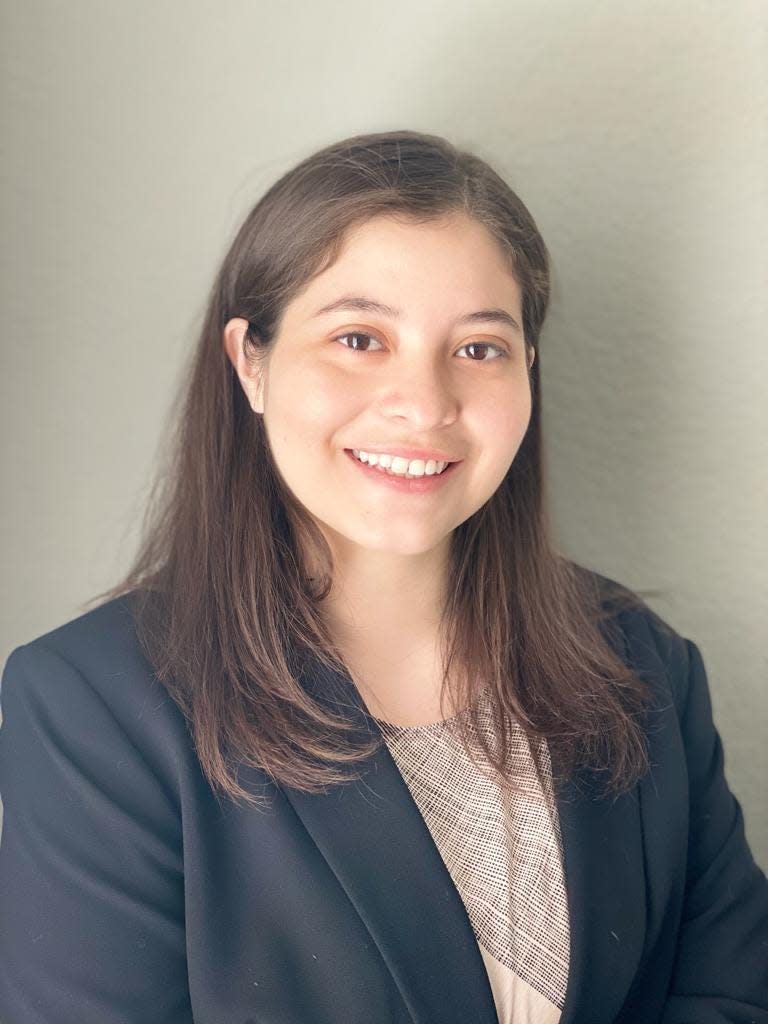Lizbeth Murillo: Conversations with 'la familia' about aging and Alzheimer’s disease

During a routine phone call with my family in Ecuador, my mother, Mami, told me they are actively looking for a doctor specializing in geriatrics for Abu (my grandmother). They explained that Abu was showing signs of “aging.” Curiously, I asked my family what they thought aging should look like.
Mami explained that healthy aging meant the absence of chronic physical illnesses. My sister, Silvi, added that it involves taking care of yourself with food and exercise. I realized that none of my family members mentioned cognitive or brain health in their perceptions of healthy aging.
I asked more about their perspective on aging, both out of concern for my Abu and because of my involvement as a graduate research assistant at the University of North Florida’s Preventing Alzheimer’s with Cognitive Training (PACT) study. In my role, I conduct screenings with volunteers aged 65 and older who are interested in completing computerized brain training games to prevent Alzheimer’s disease.
Additionally, my master’s thesis is inspired by my hope to learn more about how others in the Hispanic community perceive healthy aging and their motivations for volunteering for research projects, like PACT. From my thesis, I have found that our PACT participants are largely motivated by their personal connections to Alzheimer’s and interest in brain health.
I hope to expand this research by increasing Hispanic representation in PACT to study differences in our participants’ motivations based on race and ethnicity.
According to the Alzheimer’s Association, Hispanics/Latinx individuals are 1.5 times more likely than Caucasians to develop dementia, and 57% believe that a significant loss of memory or cognitive abilities is a normal part of aging. Despite the higher risk and misconceptions of Alzheimer's, less than 1% of Hispanics/Latinx participate in clinical research.
Hispanic Heritage Month: Latinos and Latino culture can be celebrated year-round
'It's hard on all of us': No one gets off easy with Alzheimer’s and MCI
Letters: Don’t remove sex education, reproductive health in Duval County Public Schools
The lack of representation in research affects what is known about Alzheimer's and prevention among Hispanics. One of my mentors at the University of Florida, Dr. Stacey Alvarez-Alvarado, shares my hope to better support our community through the PACT study.
“Prevention was never emphasized when I was growing up; pharmaceutical treatments were considered the 'sole fix' for chronic diseases. But as we age, understanding the impact of our current behaviors on our quality of life can improve our knowledge of Alzheimer’s disease prevention," she said. "Knowledge and diverse representation in research are powerful, and the PACT study is just one way we can address healthy aging.”
The conversations with my family mirrored my thesis research on the health beliefs of the Hispanic community. Yet I was unaware of my own family’s perceptions about aging and dementia, despite the prevalence of Alzheimer's in our community. When talking to my family about my research in Alzheimer's prevention, I learned their understanding of the disease and other related dementias are influenced by friends and neighbors.
Abu explained, “you hear about it from your friends who have relatives with the disease, so you get an insight of the symptoms and what the disease looks like.” Her explanation highlights the importance of strong connections within the Hispanic community. Through my position at UNF PACT, I have connected with the local Hispanic community in Jacksonville to spread awareness and educate others on Alzheimer's. I hope to bridge the gaps between clinical research and the needs of my community and other minority groups who also face an increased risk of developing Alzheimer's and other related dementia.
During Hispanic Heritage Month, I am reflecting more on how my culture, community, and family shape my future. After graduation, I plan to pursue a career in community-based research focused on increasing the representation of minorities, including Hispanic and African American populations, in clinical research. Through my work, I hope to honor my family and community, so in the future, we can proudly say, “Si se pudo — we did it!"
The PACT study is recruiting volunteers aged 65 and older with no signs of cognitive impairment or dementia. More information is available at PACTStudy.org or by calling (904) 620-4263.

Lizbeth Murillo is originally from Quito, Ecuador and currently resides in Jacksonville, where she is completing her master's of psychological sciences at UNF.
This guest column is the opinion of the author and does not necessarily represent the views of the Times-Union. We welcome a diversity of opinions.
This article originally appeared on Florida Times-Union: Conversations with 'la familia' about aging, Alzheimer’s disease

